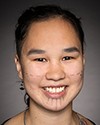Thank you.
I don't even know where to begin.
Being a part of this committee is more than just an exercise that you do once to say, “Okay now I know more about indigenous histories, indigenous peoples.” The blanket exercise itself, and I'm one of two self-identifying Inuit in the 338, totally excludes Inuit and Métis groups. For us to have a productive and ongoing discussion, learning doesn't stop there. You don't do the blanket exercise and say, “Okay, I've learned my history.”
People who are fortunate enough to learn and know that history.... I'm self-taught. I didn't know anything about my people either until I started teaching myself and looking for that information. It's an ongoing process. I think it's great that we want to have something like that. We need to be careful about tokenism of ceremony and the exercises that we do. That's also something that everybody in the committee should be invested in outside of this committee.
Let's not carve out time for this one particular thing. Let's make a personal investment in educating ourselves and becoming more aware. When we talk about the issues that indigenous peoples face...and wording is so important. It's not indigenous issues. It's not an issue because we're indigenous. It's an issue that we, indigenous peoples, face.
In saying all of this, I think it's important that we know that history. Often the federal government has played the biggest role in the situations we see indigenous peoples and indigenous groups in today. Now we need to be part of that solution. How can we do that if we don't know the history, if we don't acknowledge that there are three distinct groups? Even within our three indigenous groups there are massive differences.
My point is to steer away from tokenism. People need to have a personal investment in educating themselves and in becoming more aware of the history of indigenous peoples to have a better understanding of where we're at today.

